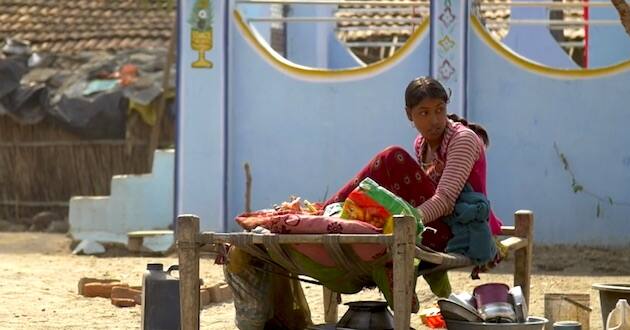Providing young girls in India an alternative to prostitution

For 500 years, one tribal group in northern India has relied on the prostitution of its oldest daughters as a key source of income.
This tribe, known as the Banchara, is part of India’s lowest caste — the Dalits or “untouchables.” While all of the Banchara people suffer from discrimination, extreme poverty, and lack of educational opportunities, girls bear the brunt of it.

When Jafit was born into the Banchara community, she was taught from a young age that she must do whatever it took to provide for her family … even if that meant selling her body for sex.
I’ve changed Jafit’s name because her culture forced her into this lifestyle of sexual slavery. It’s a tradition called Nari Mata. The oldest daughter in each household will enter prostitution in order to pay for the marriage dowries of her brothers.
Jafit started selling her body at the age of 12 — which is customary for girls in the Banchara community. Now, she’s 20, has a 6 year-old son, and won’t pay off her brothers’ dowries for another 40 years.
Families, driven by poverty, perpetuate the ancient tradition behind this practice. Mothers groom their daughters for the sex industry, fathers peddle their services to locals, and brothers use their sisters’ earnings to pay for their dowries.
The entire family benefits from the prostitution scheme — from the abuse of a young girl.
But the sex industry is no place for a little girl.
She should be in school, on the path to a career she loves, and in a home where she feels safe and valued. Her place shouldn’t be in the middle of a business transaction.
Jafit dreams of getting married one day. She wants to support her brothers, but not like this. She wants to have a career and a life of her own. But without an education, Jafit will never escape a life of abuse, shame, STDs, unplanned pregnancies, and pain.
The organization I work with has been advocating for girls in the Banchara community for more than eight years, going deep into the heart of India to confront modern slavery face-to-face. We offer girls a choice — the opportunity to get an education instead of following in their cultural tradition of slavery. And with every girl who chooses freedom, we are seeing progress.
But it takes time to break down a tradition that has dominated a society for centuries. Many parents see no value in sending their daughters to school. They believe she should be making money on the streets like so many generations before her instead of spending time in a classroom.
I have traveled to the Banchara communities of India many times, and I have seen some of the most horrendous sights. These are images I wish I could wipe from my memory. It wasn’t necessarily graphic or obscene like I’ve seen in the red-light district of Pattaya, Thailand, where girls stand half naked on Walking Street.
But the things I saw in India were so disturbing, mainly because of what they stood for. A cot outside of a family’s home meant there was a daughter there whose body was for sale. And if the girl was sitting on the cot outside, it meant she was “open for business.”
I don’t have a daughter — but if I did, I cannot possibly imagine teaching her to put on seductive makeup as she nears her 12th birthday. I can’t imagine seeing my sons encouraging her to take more customers so they will have a bigger marriage dowry and be able to make more successful marriages.
But to people from the Banchara community, this is everyday life. Hundreds of years of desperate poverty and family obligation mean they have never known anything else.
That’s why the best way to break through this cultural slavery is to provide a girl with another option.
First, prove to her she is worth more than being degraded day after day. Then, show her she can pursue an education, despite the fact that she is a girl. And when she can confidently enter the workplace, she can support her family in an honorable, dignified, and safe way.
And when a girl is given freedom, she will teach her own daughters someday how much they are worth and that they do have a choice … helping to break the generational cycle of slavery.
Girls don’t belong on cots outside their homes as if they are “for sale” signs in their front yard. They belong in the classroom, in the workplace, and helping to raise up their own children to live in freedom.
It’s been my passion over the years to raise awareness about these atrocities and help rescue girls out of this terrible life. I hope you will join me so we can put girls in their place — where they truly belong — in a safe home, receiving an education, and learning their true worth.
Noel Yeatts is an active advocate for humanitarian needs around the world. With over 20 years of experience in humanitarian work, Noel is an author, speaker, and the President of World Help, an international, Christian humanitarian organization serving the physical and spiritual needs of impoverished communities around the world. Noel regularly takes the stage for speaking engagements and advocacy events around the country and has been widely recognized for her groundbreaking book, “Awake: Doing a World of Good One Person at a Time.”
For more information, visit the World Help website.








